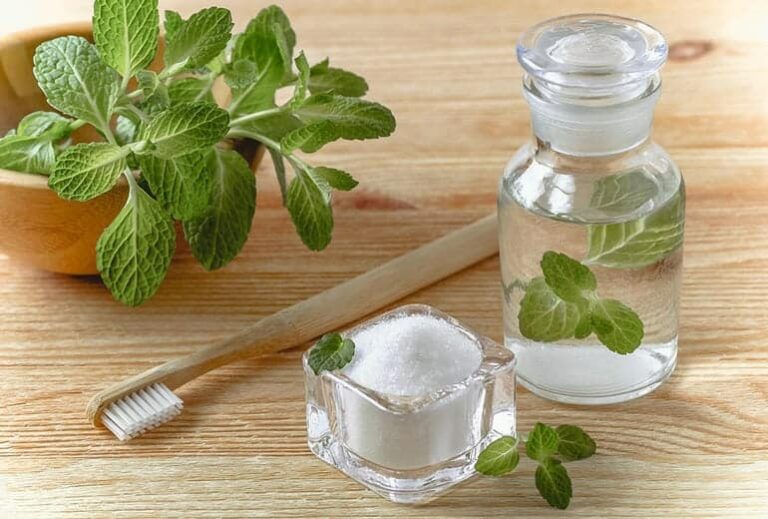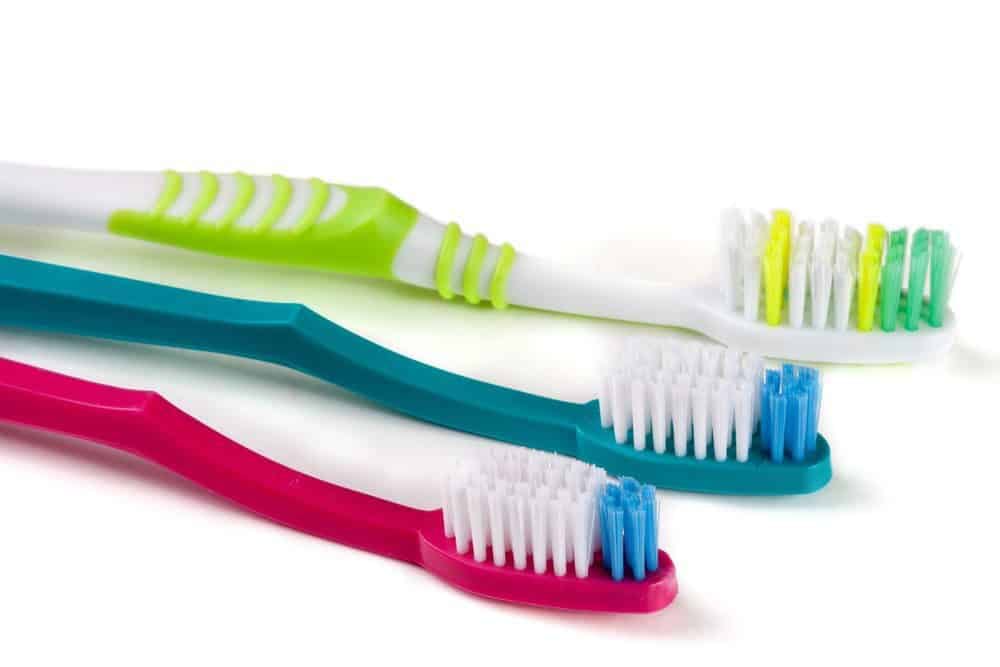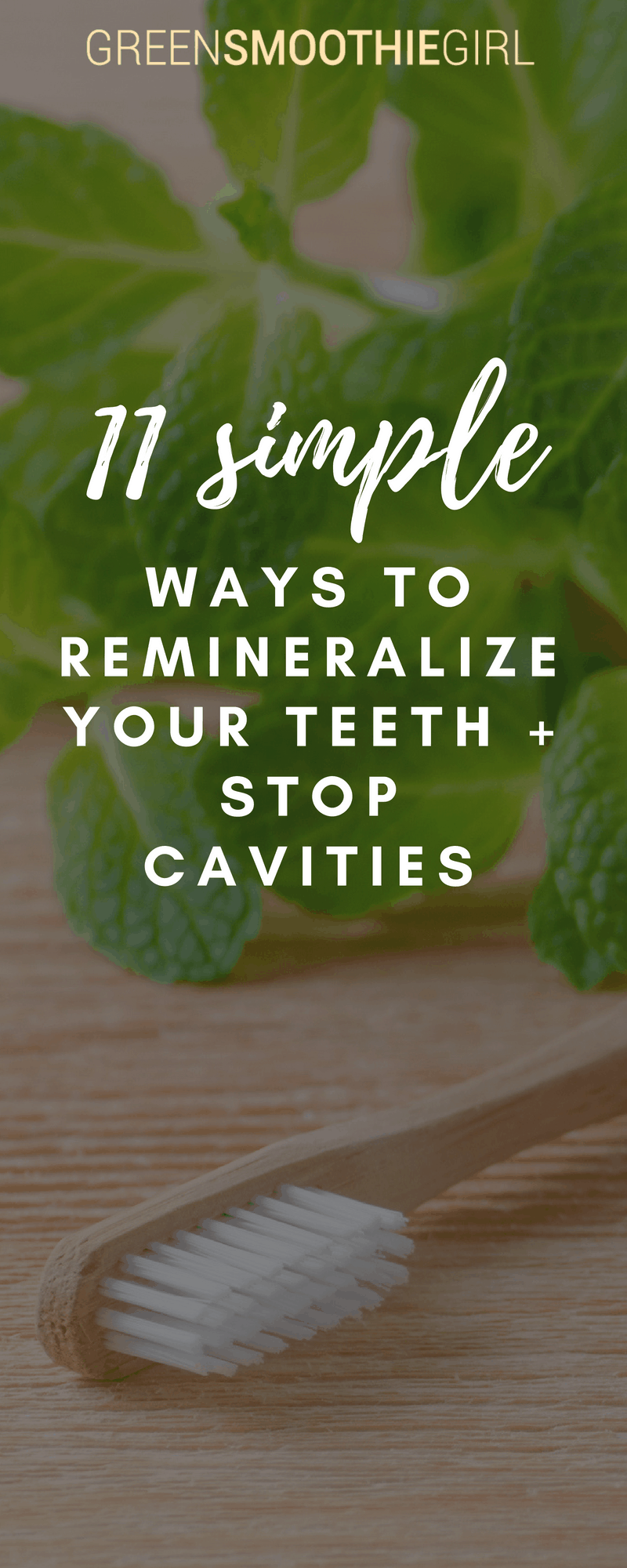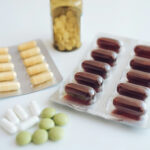11 Simple Ways to Remineralize Your Teeth & Stop Cavities

Did you know that your teeth can repair and heal, just like bones? The composition of tooth enamel is 96% minerals, making it the hardest tissue in the human body. But despite being so strong, teeth are also porous, and can lose as well as absorb these minerals. This is both the bad news and the good news, because just as cavities form due to demineralization of the tooth enamel, you can heal and remineralize teeth by replacing vital minerals that your teeth require to be as strong as possible.
How do your teeth lose minerals?
Demineralization occurs when tooth enamel is broken down in an acidic oral environment, which is created as plaque bacteria feed on sugars from sweet or starchy foods. When this breakdown happens without something being done to reverse it, you get tooth erosion, which can lead to cavities.
Reversing demineralization is called remineralization. When you take steps to remineralize teeth, you can actually heal and replace eroded tooth enamel before a cavity reaches the dentin layer beneath, requiring a dentist visit.

Your first defense is to brush and floss to remove erosive plaque and the sugars that feed it, but there are several more ways to help remineralize teeth.
Fortunately, remineralizing teeth and preventing tooth decay is a relatively easy thing to do naturally. Obviously, your first defense is to brush and floss to remove erosive plaque and the sugars that feed it, but there are several more ways to help teeth remineralize.
11 Ways to Remineralize Teeth at Home
1. Foster a More Alkaline Oral Environment
The opposite of acid is alkaline, and while too much alkalinity can also be harmful, enough to neutralize decay-causing acid is a good thing. Rinsing with an alkaline mouthwash, drinking alkaline water, brushing your teeth after meals, and eating more alkaline (non-acidic, non-sugary) foods will all help balance your mouth’s pH—which allows your teeth to remineralize naturally.
2. Eat Your Veggies
Vegetables are high alkaline, high in essential vitamins, and provide minerals for teeth. They are also helpful for keeping plaque in check because they don’t provide the sugar it feeds on.
3. Try Oil Pulling
Oil pulling can help reduce bacteria5, which can reduce demineralizing, making your efforts to remineralize teeth more effective. To oil pull, take a tablespoon of organic coconut oil in your mouth, let it melt, and then swish it around between your teeth for 10-15 minutes. Then spit it into a garbage can (never into a sink, where it can re-harden quickly and clog).
4. Scrape Your Tongue
Use a tongue scraper to remove more detrimental bacteria from your mouth. The fewer bacteria there are, the less damage being done.
5. Limit Sugar
Simply put, sugar causes cavities. Plaque bacteria feast on sugar and then create acids that break down your tooth enamel. When you eat sugary foods, it’s like taking your plaque bacteria to a Las Vegas buffet. Limiting sugar helps starve them and reduce their demineralizing effect on teeth, one of the many reasons you should break your addiction to sugar.
6. Increase Saliva Flow
Your saliva is an important part of your body’s process to remineralize teeth. Many people experience dry mouth as a result of medications or health concerns, and their teeth can suffer as a result. Stay properly hydrated and chew on sugarless gum to keep the good stuff flowing.
7. Pick a Glycerin-Free Toothpaste
Brushing your teeth with the right toothpaste matters. Glycerin, a common toothpaste ingredient (even in natural brands), can make it more difficult to remineralize teeth. It creates a coating that makes teeth feel smooth but doesn’t allow the important minerals for teeth from saliva and other sources to be absorbed.
[related: Miswak Toothbrush: Why you should use a stick to brush your teeth]
8. Try Xylitol
A natural sweetener, Xylitol has also been shown to aid³ in remineralizing teeth. Xylitol is available in many gums, toothpastes, tooth powders, and mouthwashes.
9. Cut Back on Processed Starches
Turns out, processed starches are bad for teeth, too. A study4 put kids on a cereal-free diet for six months, and during that time period the initiation and spread of cavities was almost eliminated. Starch provides simple carbohydrates that decay-causing bacteria love, and reducing it helps tip the erosion-vs-remineralizing scales in your favor.
10. Enjoy a Mineral-Rich Diet
Foods like nuts, legumes, whole grains, and dark leafy greens give your body what it needs to replace minerals in teeth. Foods like white beans, almonds, and broccoli are also helpful for the calcium they provide. Taking a plant-based mineral supplement like fulvic acid can help add much-needed trace minerals to your diet.
11. Get Your Vitamin D
Vitamin D helps your teeth do a better job of remineralizing, so get out in the sunshine, and eat good whole-food sources of it like mushrooms, almonds, almond milk, tofu, organic eggs and wild-caught salmon. Combine Vitamin D with Vitamins K2 and A to get the full benefit, in supplements and food. Foods that contain Vitamin K2 are free-range organic egg yolks, free-range organic dark chicken meat, and grass-fed butter or ghee, and Vitamin A can be found in free-range organic eggs, leafy greens, and orange and yellow vegetables. Omelette, anyone?
Remineralizing teeth is nature’s way of protecting against cavities and decay. Give your body a hand by utilizing the 11 strategies above—even a few small changes will pay off over time.
Up Next: Teeth Hurt? When To See A Dentist, Or Use Home Remedies
Robyn Openshaw, MSW, is the bestselling author of The Green Smoothies Diet, 12 Steps to Whole Foods, and 2017’s #1 Amazon Bestseller and USA Today Bestseller, Vibe.
Sources
- Ensanya Ali Abou Neel, Anas Aljabo, Adam Strange, Salwa Ibrahim, Melanie Coathup, Anne M Young, Laurent Bozec, and Vivek Mudera; Demineralization–remineralization dynamics in teeth and bone, Int J Nanomedicine
- Sarita Arteaga; Demineralization and Remineralization: The Battle to keep teeth strong and healthy; Dentistry IQ
- Miake Y, Saeki Y, Takahashi M, Yanagisawa T.; Remineralization effects of xylitol on demineralized enamel., J Electron Microsc.
- May Mellanby and C. Lee Pattison; Remarks on The influence of a cereal-free diet rich in Vitamin D and Calcium on dental caries in children, Br Med J.
- Asokan S, Rathan J, Muthu MS, Rathna PV, Emmadi P; Raghuraman; Chamundeswari; Effect of oil pulling on Streptococcus mutans count in plaque and saliva using Dentocult SM Strip mutans test: a randomized, controlled, triple-blind study, J Indian Soc Pedod Prev Dent
This article may contain affiliate links, which allows you to support our mission (as well as demonstrate market demand for safer products) without costing you extra.
Posted in: Dental Health, Health Concerns

















